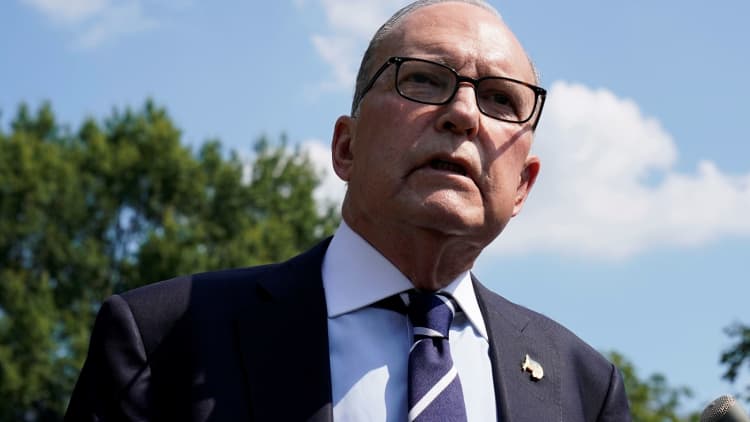
President Donald Trump's top economic advisor, Larry Kudlow, hinted at a middle-class tax cut Tuesday as the president searches for an edge in his 2020 reelection bid.
With just under a year until voters decide whether Trump gets a second term in the White House, the National Economic Council Director said "the president has asked me to pursue something called Tax Cuts 2.0." While a Washington Post report published Tuesday said Trump would propose a 15% middle-class rate, Kudlow told CNBC it is "way too soon" to get into specifics of a plan.
"We're in very preliminary stages right now," Kudlow said in a "Closing Bell" interview, noting that he has spoken to lawmakers and administration officials about a tax proposal. "This thing will not be completed for many months, as I say, it will be released as a strategic pro-growth document for the campaign. We want to see middle-income taxpayers get the lowest possible rates."
It's doubtful a Democratic-controlled House, which is conducting impeachment hearings into the president, would pass such a tax cut and give Trump an apparent victory heading into the 2020 election.
The White House has teased middle class tax relief repeatedly since Republicans passed their 2017 tax law. Just before last year's midterm elections, Trump pledged to cut middle-class taxes by 10%.
Nothing came of the promise.
Trump aims to reverse the political winds on taxes. Democrats have criticized the GOP changes to the tax code for passing on disproportionate benefits to businesses and the rich. While corporate tax cuts will not expire under the plan, relief for individuals will run out after a decade.
Republicans have pressured Democratic presidential contenders over sprawling social programs that they would have to fund in part through tax increases. Leading candidates have said they would draw on the wealthy or corporations for new tax revenue.
Still, Sens. Elizabeth Warren, D-Mass., and Bernie Sanders, I-Vt., have faced skepticism about whether they can fund a single-payer "Medicare for All" plan without middle-class tax hikes. Warren's campaign has contended it can cover all Americans with "not one penny in middle-class tax increases," while Sanders suggested he would not release a specific plan about how to pay for the program.
While Trump hopes to win political points by pushing for middle-class tax cuts, doing so would mean more concerns about budget deficits in practice. The 2017 tax law was expected to increase budget deficits by about $1.5 trillion over a decade.


